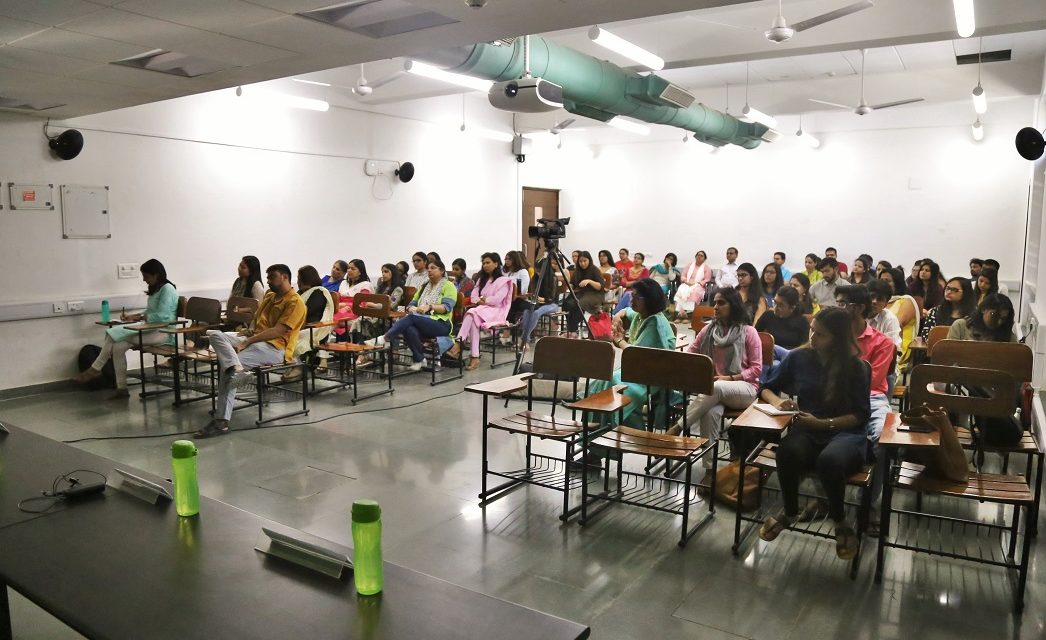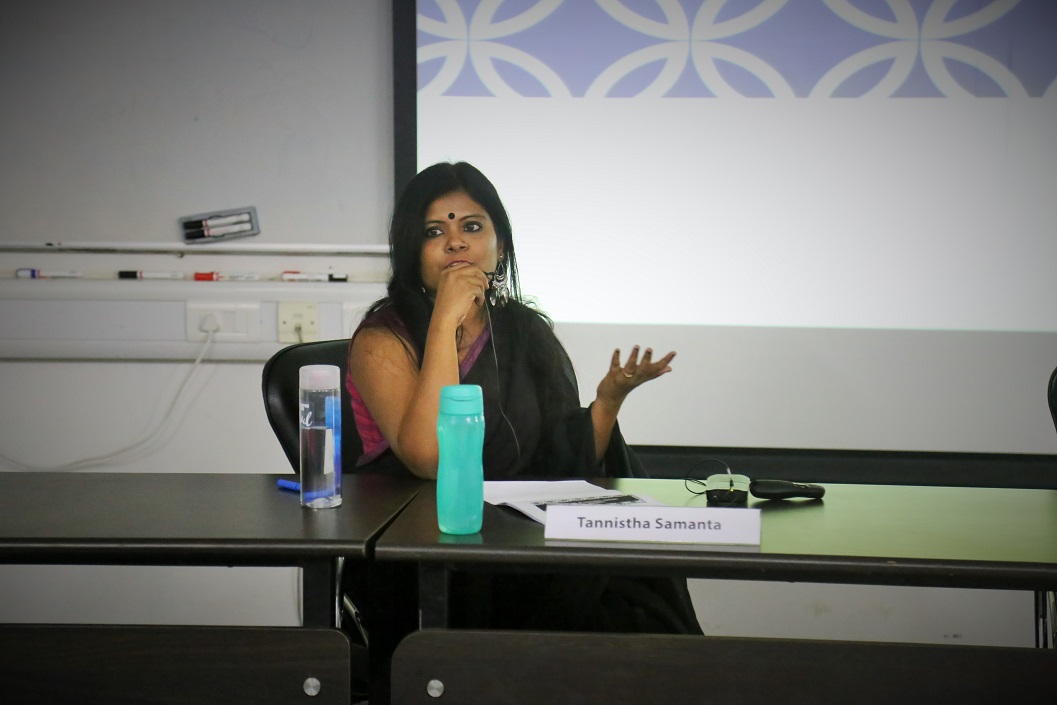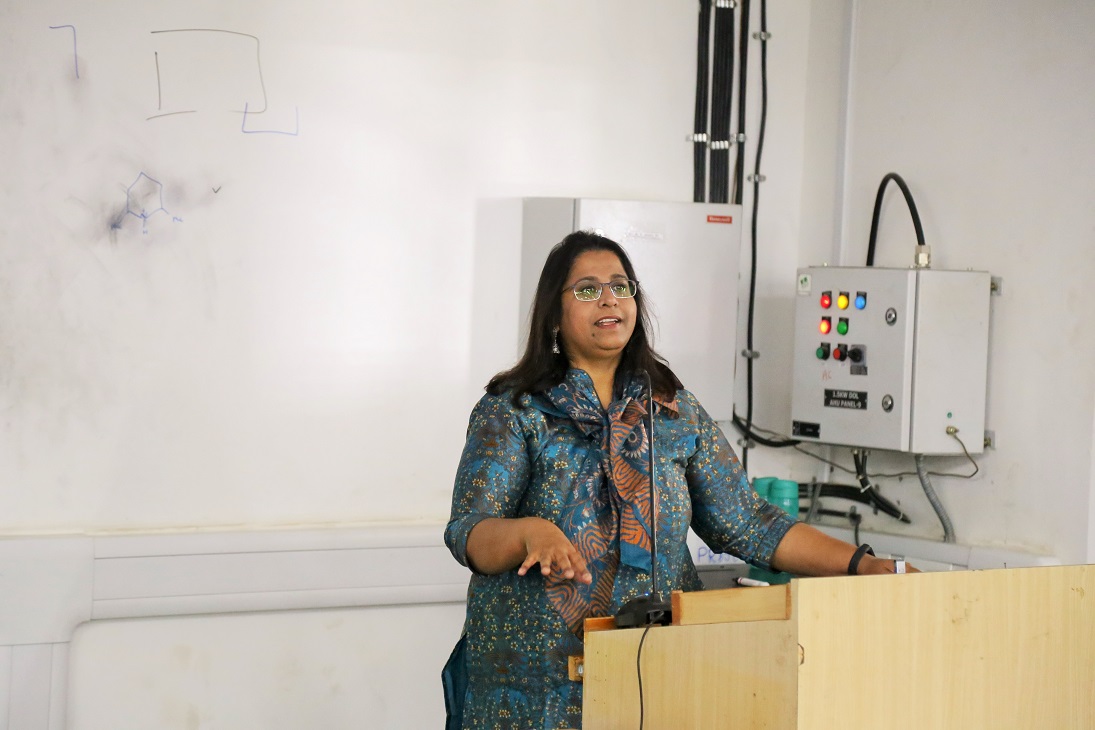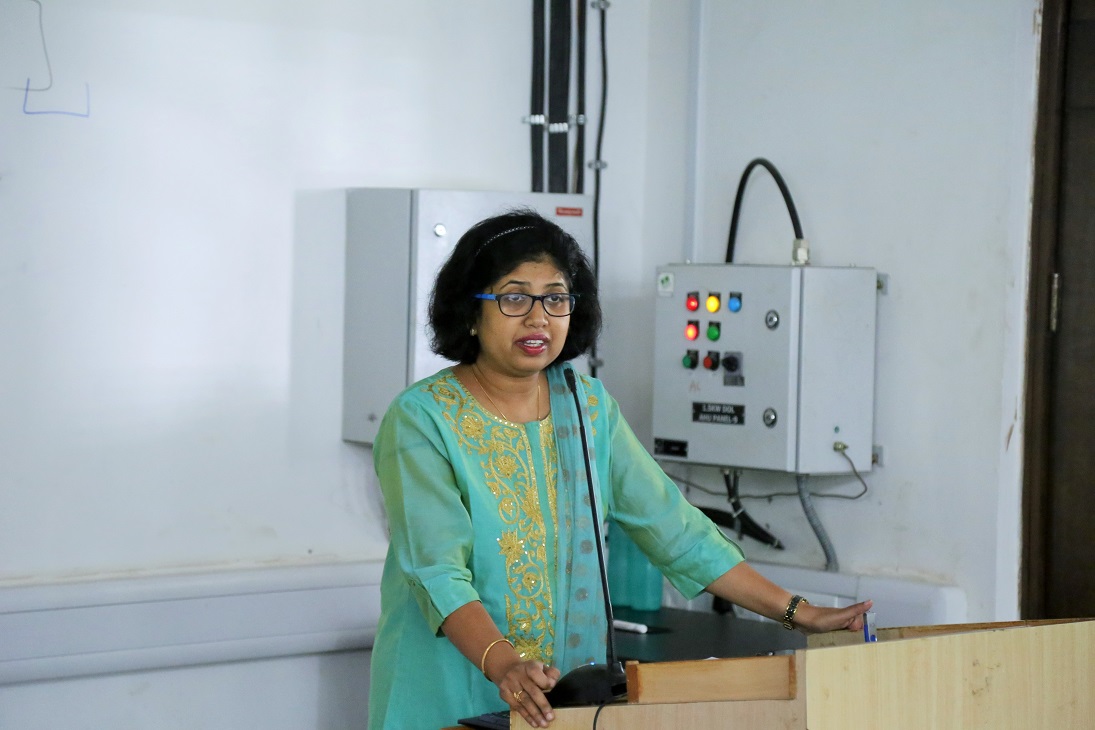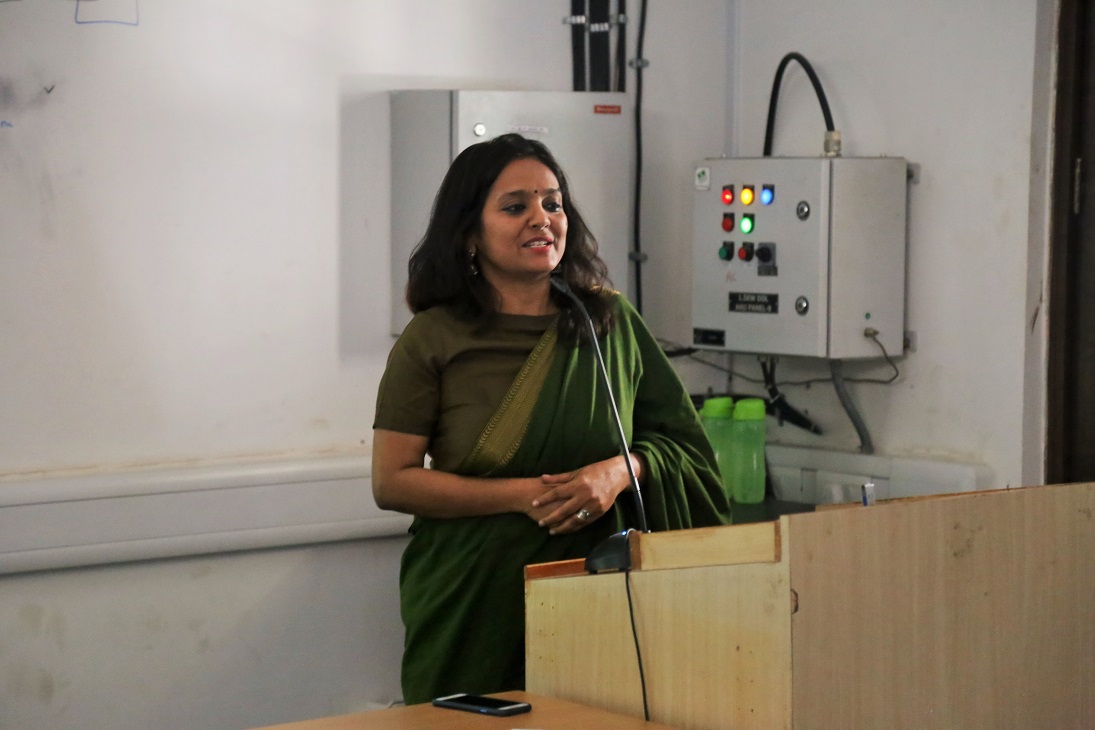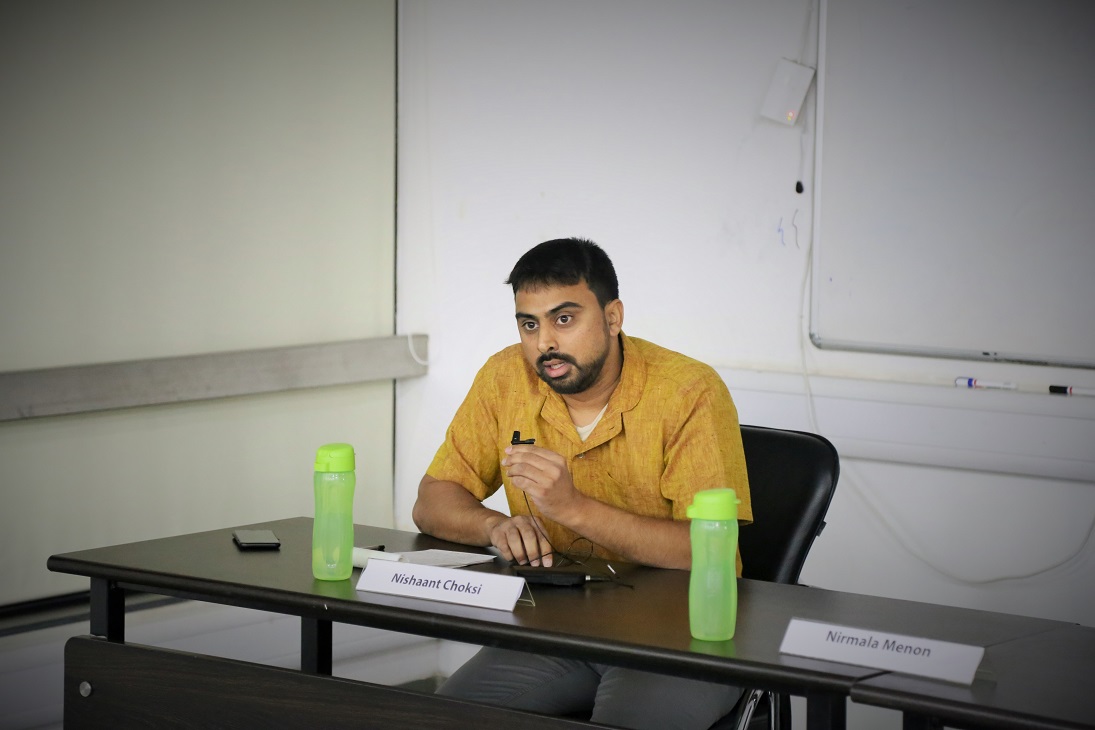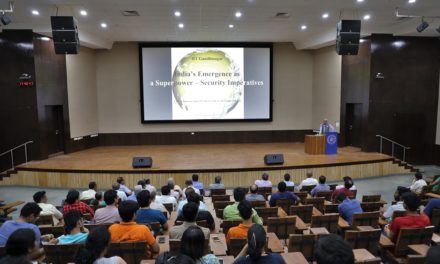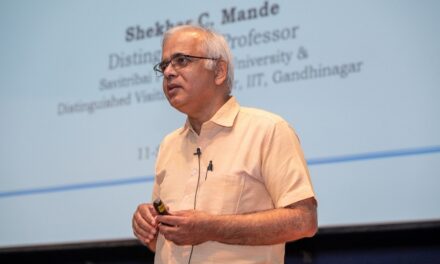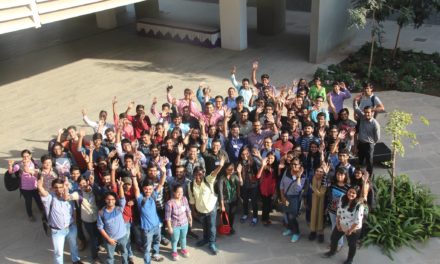Madhumita Mazumdar is Associate Professor, Faculty of Humanities and Social Sciences at DAIICT, Gandhinagar. Her research interests are broadly in the fields of social and cultural history, science, technology and design, history of modernity and developmental practice in colonial and post-colonial India, and economic and social history of Gujarat.
Rupa Jha is the Head of Indian Languages for BBC India. She is responsible for BBC Hindi, Tamil, Telugu, Marathi, Gujarati and Punjabi operations in India. Rupa is responsible to guarantee the excellence and originality of an impartial, robust and engaging languages editorial output.
Arka Chattopadhyay is Assistant professor of literary studies in the Humanities and Social Sciences discipline at IITGN. He studies aspects such as the fundamental operational logic of a text, use of mathematical forms like geometry and arithmetic, the human obsession with counting, the moving body as an act of writing and love and sexuality as a challenge to the limits of what can be written through logic and mathematics.
Nirmala Menon leads the Digital Humanities and Publishing Research Group at IIT Indore. She is a faculty member of the School of Humanities and Social Sciences, Discipline of English. She is the author of Migrant Identities of Creole Cosmopolitans: Transcultural Narratives of Contemporary Postcoloniality (Peter Lang Publishing, Germany, 2014) and Remapping the Postcolonial Canon: Remap, Reimagine, Retranslate (Palgrave Macmillan, UK 2017). She has published in numerous international journals and speaks, writes and publishes about postcolonial studies, digital humanities and scholarly publishing. Digital humanities, gender studies, globalisation and translation studies are additional areas of research. She is one the founders of Digital Humanities Alliance of India.
Tannistha Samanta is Assistant Professor with the Department of Humanities and Social Sciences at IITGN. She is a social demographer by her research and academic interests. Her research interests draw from the intersecting disciplines of sociology, gerontology and public health to examine the sociological question of inequality adopting a range of methodological tools and praxis. Her research has been supported by grants received from the United Nations Population Fund, the Indian Council of Social Science Research, Population Foundation of India and the Government of Gujarat.
Arnapurna Rath is Assistant Professor in Literary Studies in the department of Humanities and Social Sciences at IITGN. Her research interests broadly cover the fields of South Asian narratives, comparative literature and digital humanities. She is primarily working on studying the intersections between narratives, cultures and critical theories. She has been actively developing digital humanities and new media studies at IITGN. Her extra academic interests are in creative writing, writing for social media and in the performative arts.
These are digital times and there is no escape for any gender or discipline from the power and evils of digitisation alike. The discipline of Humanities and Social Sciences at the institute organised panel discussions on the theme of The Changing Role of Women in the Age of the Digital on March 12.
The day also marked a retrospective celebration of the International Women’s Day (celebrated worldwide on March 8) with the reopening of the institute after the mid-semester break. The panels intended to recognise academic and praxis-based contributions towards the digital shift, particularly underscoring the role of women in the digital turn of civilisations.
The first panel, comprising Prof Nirmala Menon from IIT Indore, Prof Madhumita Mazumdar from DAIICT, Gandhinagar and Prof Nishaant Choksi from IITGN, discussed Writing, Research, Aesthetics in the Digital World. Putting forward her points on Women in/and Digital Age, Professor Menon emphasised that, “Data discrimination is a real social problem. Popular search engines create advertisement algorithms instead of information algorithms and majority of people believe it to be relevant content.” She gave examples of paradoxical results of the gender stereotyping on a popular search engine.
“Digitalising the humanities is as important as humanising the digital. Women have to become active participants to change gender discrimination in the digital world”, concluded Professor Menon.
Speaking about Contentious Terrains – Feminist Interventions in the Digital Learning Space, Professor Mazumdar presented the experiences from a study by her students where they analysed the trend of massive open online courses (MOOCs). She presented a class initiative on feminist interventions in the digital learning space with the story of a class initiative titled FemTechNet initiative that studied retooling of MOOCs.
The second panel, led by Ms Rupa Jha, Head of Indian Languages for BBC India, Professor Tannistha Samanta and Prof Arnapurna Rath from IITGN, focused on various aspects of Gender, Public Opinion, and Digital Journalism. Sharing her experience of working in the media industry and speaking on Women in News, Leading Change in the Newsroom, Ms Jha gave a historical context of BBC’s work practices and how it has evolved now to be a dynamic media entity that is consumed by audience on different digital platforms. She introduced participants to the content strategy of BBC with women-centric content and said that, “It is important to have a human bond with the audience. Trust, audiences, quality, creativity and respect are the ingredients that build credibility.”
Professor Samantha spoke about Digital Slumdog: Internet based leisure at the Margins. Explaining about internet cultures versus internet-mediated cultures she said, “Internet-based social spaces offer opportunities for constructing, experimenting, expressing and articulating aspirations of the youth. But, the question is whether it is able to rupture social hierarchies.”
She further explained that, “Information and Communication Technologies for Development (ICT4D) can empower the poor through digital literacy, skill development and technology use.”
In the end, Professor Rath summarised her reflections on all the panelists’ presentations. She spoke on the troll culture which affects each gender, psychologically and socially. She presented an interesting account of three case studies of women across three timelines from digital and print journalistic practices. Her stories focused on: (a) trolling and its impact through an analysis of the case of language used in YouTube and Twitter; (b) some unknown women faces during the early years of freedom struggle and their intuitive connection to newspapers; (c) a new strong language and thought process emerging in the social network accounts of ‘average homemakers’ living under the diktats of conservative social norms.

